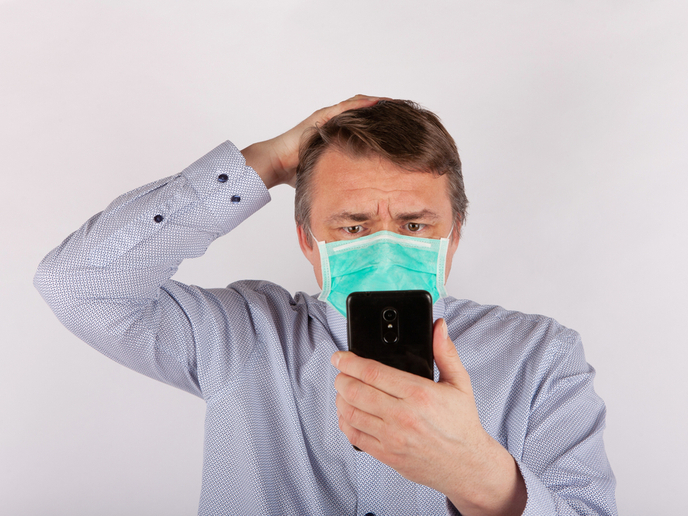Trending Science: Coping with the psychology of coronavirus fear
As the outbreak of coronavirus spreads to more countries and the death toll rises, the uncertainty of what lies ahead is concerning. Panic buying is just one coping mechanism, as the psychological ripple effects are starting to be felt in both individuals and societies.
Doctor’s impassioned plea
Abdu Sharkawy, a doctor and infectious disease expert at the University of Toronto in Canada, wrote a Facebook post(opens in new window) warning that people’s exaggerated reactions to the coronavirus spread could do more harm than the disease itself. At the time of writing this article, the post had been shared over 1.5 million times. “I am not scared of Covid-19,” he writes. “What I am scared about is the loss of reason and wave of fear that has induced the masses of society into a spellbinding spiral of panic, stockpiling obscene quantities of anything that could fill a bomb shelter adequately in a post-apocalyptic world.” Dr Sharkawy concludes: “The fact is the virus itself will not likely do much harm when it arrives. But our own behaviors and ‘fight for yourself above all else’ attitude could prove disastrous. …Temper fear with reason, panic with patience and uncertainty with education. We have an opportunity to learn a great deal about health hygiene and limiting the spread of innumerable transmissible diseases in our society. Let’s meet this challenge together in the best spirit of compassion for others, patience, and above all, an unfailing effort to seek truth, facts and knowledge as opposed to conjecture, speculation and catastrophizing.”
Managing coronavirus stress
Jo Daniels, a senior lecturer of psychology at the University of Bath in the United Kingdom whose research interests include anxiety and psychophysiology in complex medical conditions, wrote an article for ‘The Conversation’(opens in new window) that gives some practical advice on combatting fear and keeping it from developing into an obsessive compulsive disorder or panic. “At times of stress and anxiety, we are often prone to using strategies that are designed to help but prove counter-productive. For example, you may Google symptoms to try to calm yourself down, even though it is unlikely to ever make you feel better. When our strategies for de-stressing instead increase our anxiety, it is time to take a step back and ask if there is anything more helpful we can do.” Daniels says: “In the case of COVID-19, checking may also include constant monitoring of news updates and social media feeds, which significantly increases anxiety – only serving to reassure us momentarily, if at all. So if you are feeling anxious, consider tuning [sic] off automatic notifications and updates on COVID-19. Instead, do less frequent checks of reliable, impartial sources of information updates on COVID-19. … Information can be reassuring if it is rooted in facts. It is often the intolerance of uncertainty that perpetuates anxiety rather than fear of illness itself.” She continues: “Perhaps most importantly, don’t isolate yourself. Personal relationships are crucial in maintaining perspective, elevating mood and allowing distraction away from concerns that trouble us. Even in imposed isolation, it is important to combat loneliness and keep talking.” Daniels explains that “psychological distress and widespread panic does not have to be part of this experience. Continuing normal daily activities, maintaining perspective and reducing unnecessary stress is key to psychological survival. In other words, where possible, keep calm and carry on.”
Countries
United States



